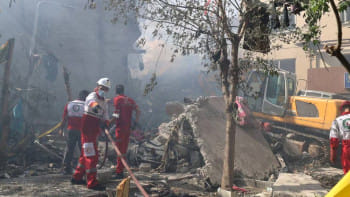Troubled Waters

IN the early 1960s, John F Kennedy said, "Anyone who can solve the problems of water, will be worthy of two Nobel prizes: one for peace and one for sciences" (cited in Likhotal 2013: 86). This statement of Kennedy implies the significance as well as challenges of resolving water problems. In South Asia, water has been constructed as a scarce resource and hence, is considered a source of conflict rather than cooperation.
Therefore, it is seen that although Bangladesh-India shares 54 rivers, there is only one water sharing agreement over the Ganges for a 30-year period. Water is used as a political tool for political purposes by the opposition. For instance, in Bangladesh, the Bangladesh Nationalist Party (BNP) and Jamaat-e-Islami use water as a trump card with regard to relations with India.
There is less engagement over good water governance. Hence, cooperation over water is a must. Water cooperation and good water governance has also been recognised by the United Nations through dedicating 2013 as the International Year of Water Cooperation. In this context, hydro-diplomacy will be imperative to promote water cooperation. IUCN defines hydro-diplomacy as "…a critical tool to ensure that shared water resources are managed efficiently, sustainably and equitably…" (IUCN 2012).
Pressure on water is increasing rapidly due to increased pressure of water for agriculture, sanitation and rapid industrialisation. This increased pressure is generating tensions in societies and among countries as well. The World Economic Forum recently ranked water crisis as the top global risk. Moreover, climate change and its impacts on water is a pressing concern now. While water is finite, the demand for it keeps increasing. Water crisis can fuel social tension and escalate regional and global conflicts if water sharing arrangements are inadequate and insufficiently implemented.
Hence, water is an issue which needs to be addressed systemically. Dealing with water is related to conflict prevention and crisis management. International Commission for the Protection of Rivers, formed in 1994, demonstrates the importance of dealing with water with conflict resolution. In this context, the relevance of hydro-diplomacy comes into the forefront since it is an "innovative and integrative approach to address complex water problems" (Tufts University 2014). Furthermore, Pohl et. al (2014) argue that "preventing conflict over water requires better understanding among the water, climate and foreign policy communities, as does using water as an instrument for greater overall cooperation."
In case of South Asia, Siddharth Chatterjee and Poonam Khetrapal Singh in their study found that 'most of the 1.5 million children that die each year as a result of unsafe water live in South Asia' (Chatterjee and Poonam 2013). Chatterjee and Poonam also found that 456,000 people in India, 100,000 in Pakistan and 68,000 people in Bangladesh die due to water related diseases. The major reason for water crisis is not the scarcity of water but absence of proper water governance/management. Water is used as a tool by the respective countries' political leaders to uphold their interests.
Lack of political will, engagement of and dialogue by the concerned stakeholders, i.e. political leaders, policy makers and academics, is another principal reason for the water crisis in South Asia. There is a huge gap between practitioners and academics as well as within political leaders. In addition, due to lack of knowledge over the importance of water, people are polluting waters in South Asia indiscriminately. Tens of thousands of South Asians do not have access to safe drinking water in South Asia. It is ironic that there is poor water governance; cooperation is quite absent in South Asian waters.
Many argue that in the context of South Asia, it is not about water scarcity but lack of proper water governance and knowledge over water cooperation. Thus hydro-diplomacy will be imperative to resolve any water related conflict.
According to Pohl et. al (2014), "The use and allocation of water in trans-boundary basins is both a source of tension and an opportunity to promote cooperative practices and build collaborative institutions. The extent to which these conflict risks can be managed and the significant cooperative opportunities realised will depend on the level of political engagement demonstrated by both basin countries and the international community."
Developing hydro-diplomacy pedagogy is important since pedagogy plays a pivotal role to shape intellectual ground; appropriate steps must be taken to resolve such problems. Hence, the development of pedagogy on water diplomacy is crucial in South Asian universities since proper water management in South Asia is essential to avert any future water-related conflicting situations. The present water crisis in South Asia and long-standing water disputes are due to the lack of knowledge of proper water governance, and ignorance about the positive outcome of water dispute resolution.
Therefore, developing hydro-diplomacy curricula is crucial since it will educate tomorrow's policy makers - the students, which will be imperative to address future water-related conflicts. Besides, knowledge over water is pertinent to deal with water issues. Since water related problems are linked to conflict prevention and resolution, it is important to promote hydro-diplomacy to diffuse any tensions over water in the GBM basins.
The writer is Lecturer, Department of International Relations, University of Rajshahi. He can be reached at [email protected].

 For all latest news, follow The Daily Star's Google News channel.
For all latest news, follow The Daily Star's Google News channel. 



Comments